Data-driven Humanitarian Mapping and Policymaking
Harnessing Human-Machine Intelligence for High-Stake Policy and Resilience Planning
3rd KDD Workshop, August 15, 2022
ACM SIGKDD Conference on Knowledge Discovery & Data Mining
Hybrid Conference (Zoom + Washington DC)
Hybrid Conference (Zoom + Washington DC)
Follow: @HumanitarianSys Twitter
Cover Image: USGS, NASA
Vision
Humanitarian challenges disproportionately impact historically marginalized and underserved communities worldwide. According to the United Nations Office for the Coordination of Humanitarian Affairs (OCHA), 274 million people will be at-risk in 2022. Despite growing perils to human wellbeing and environmental sustainability, there remains a notable paucity of computing and data science research to inform equitable policy decisions for improving the livelihood of vulnerable populations. The 3rd KDD Workshop on Data-driven Humanitarian Mapping and Policymaking envisions scientific and community-based solutions to investigate and address these overarching sustainability challenges.
Increasing adverse consequences of societal challenges exemplify the criticality of Data-driven Humanitarian Mapping for high-stake public policy and resilience planning. The workshop convenes a global community of researchers, at-risk populations, and policymakers with a commonly shared data science research agenda to bridge the gap between theory, practice, technology transfer, and policymaking for equity and justice. We will continue to shape the crucial research area by building upon the overwhelming success of the KDD 2020 and KDD 2021 workshops.
While Data-driven Humanitarian Mapping technologies can play a vital role in policymaking and resilience planning, they remain prone to algorithmic biases, privacy, fairness, accountability, and transparency risks. Responsible designs of these tools can advance our understanding of the spatiotemporal complexities of sustainability challenges. These include climate change risks, inequalities, ongoing war, human conflicts induced forced displacements, environmental injustices, human trafficking, food insecurity, racial and gender violence, the COVID-19 Coronavirus pandemic, and human rights violations.
The workshop on Data-driven Humanitarian Mapping and Policymaking provides an inclusive platform to: (1) advance novel computational and inference techniques for identifying, mapping, and measuring sustainability risks; (2) share evidence-based methodologies to formulate, simulate, and evaluate adaptation, mitigation, and resilience strategies; (3) conceptualize equitable and ethical designs of novel data science methods (e.g. privacy-preserving machine learning, federated learning on non-IID datasets, causal models, spatiotemporal analytics, geospatial computer vision, collaborative visual analytics, etc.), edge computing technologies, and heterogeneous datasets (such as earth observation remote sensing, mobile phone data, online social media, surveys, crowdsourcing datasets, etc.); (4) establish effective cross-disciplinary collaborations; (5) develop mechanisms and ethical standards for deploying data-intensive technologies for equitable decision-making.
The KDD Workshop on Humanitarian Mapping welcomes and encourages participation by people of all backgrounds and identities worldwide. We believe this is a critical time to convene a broad spectrum of scientists, NGOs, urban planners, communities, and policymakers to advance the data science and policy research program for tackling pressing societal challenges. We are looking forward to your participation on this important endeavor!
For further updates, follow @HumanitarianSys Twitter. We also invite you to join the Slack group by submitting this form.
The paper and citation:
Gaikwad et. al., 2022. Data-driven Humanitarian Mapping and Policymaking: Toward Planetary-Scale Resilience, Equity, and Sustainability. In Proceedings of the 28th ACM SIGKDD Conference on Knowledge Discovery and Data Mining (KDD ’22), 2022.
Increasing adverse consequences of societal challenges exemplify the criticality of Data-driven Humanitarian Mapping for high-stake public policy and resilience planning. The workshop convenes a global community of researchers, at-risk populations, and policymakers with a commonly shared data science research agenda to bridge the gap between theory, practice, technology transfer, and policymaking for equity and justice. We will continue to shape the crucial research area by building upon the overwhelming success of the KDD 2020 and KDD 2021 workshops.
While Data-driven Humanitarian Mapping technologies can play a vital role in policymaking and resilience planning, they remain prone to algorithmic biases, privacy, fairness, accountability, and transparency risks. Responsible designs of these tools can advance our understanding of the spatiotemporal complexities of sustainability challenges. These include climate change risks, inequalities, ongoing war, human conflicts induced forced displacements, environmental injustices, human trafficking, food insecurity, racial and gender violence, the COVID-19 Coronavirus pandemic, and human rights violations.
The workshop on Data-driven Humanitarian Mapping and Policymaking provides an inclusive platform to: (1) advance novel computational and inference techniques for identifying, mapping, and measuring sustainability risks; (2) share evidence-based methodologies to formulate, simulate, and evaluate adaptation, mitigation, and resilience strategies; (3) conceptualize equitable and ethical designs of novel data science methods (e.g. privacy-preserving machine learning, federated learning on non-IID datasets, causal models, spatiotemporal analytics, geospatial computer vision, collaborative visual analytics, etc.), edge computing technologies, and heterogeneous datasets (such as earth observation remote sensing, mobile phone data, online social media, surveys, crowdsourcing datasets, etc.); (4) establish effective cross-disciplinary collaborations; (5) develop mechanisms and ethical standards for deploying data-intensive technologies for equitable decision-making.
The KDD Workshop on Humanitarian Mapping welcomes and encourages participation by people of all backgrounds and identities worldwide. We believe this is a critical time to convene a broad spectrum of scientists, NGOs, urban planners, communities, and policymakers to advance the data science and policy research program for tackling pressing societal challenges. We are looking forward to your participation on this important endeavor!
For further updates, follow @HumanitarianSys Twitter. We also invite you to join the Slack group by submitting this form.
The paper and citation:
Gaikwad et. al., 2022. Data-driven Humanitarian Mapping and Policymaking: Toward Planetary-Scale Resilience, Equity, and Sustainability. In Proceedings of the 28th ACM SIGKDD Conference on Knowledge Discovery and Data Mining (KDD ’22), 2022.
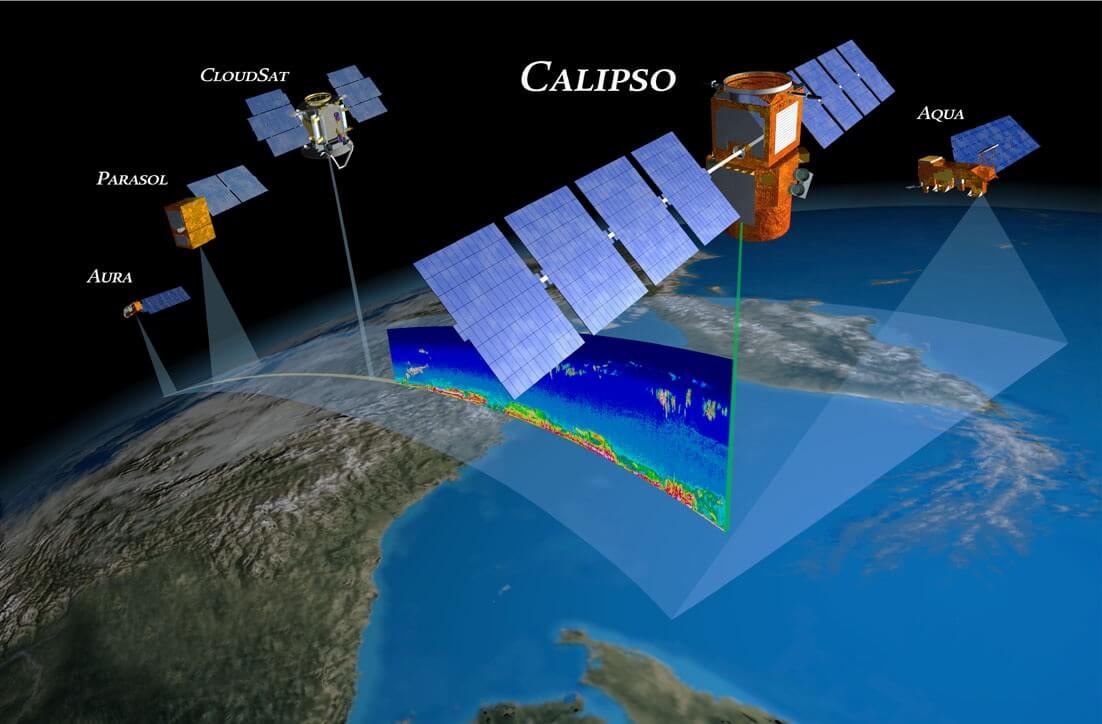


JHU Coronavirus Resource Center (April 22, 2021)
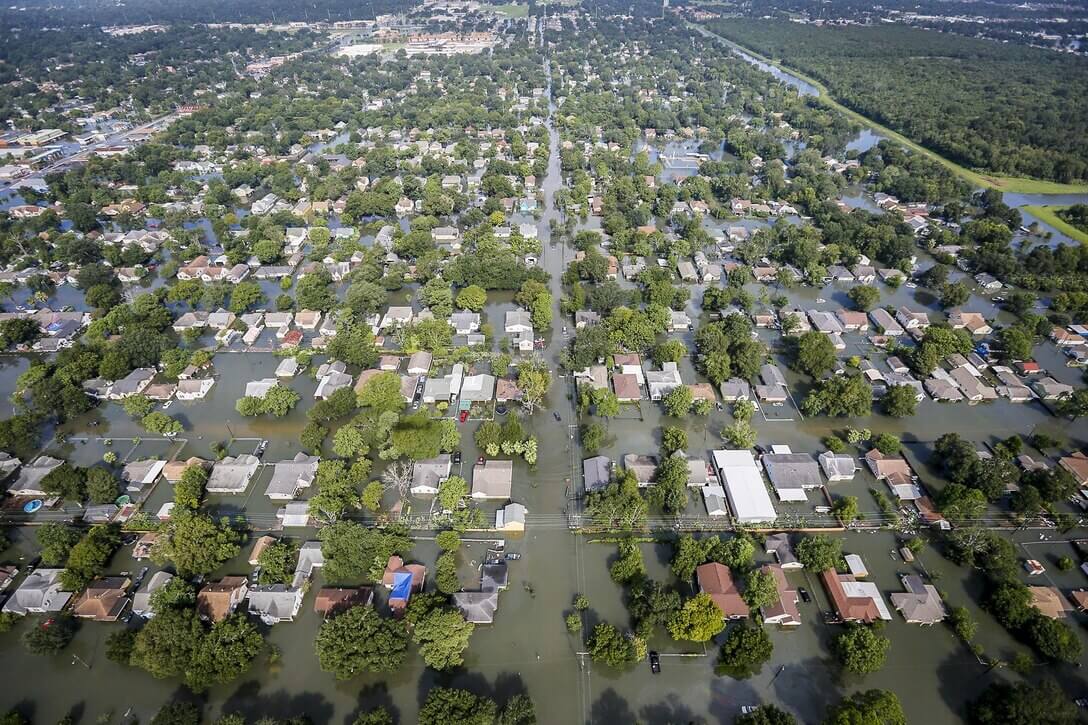
PC: Air National Guard photo by Staff Sgt. Daniel J. Martinez
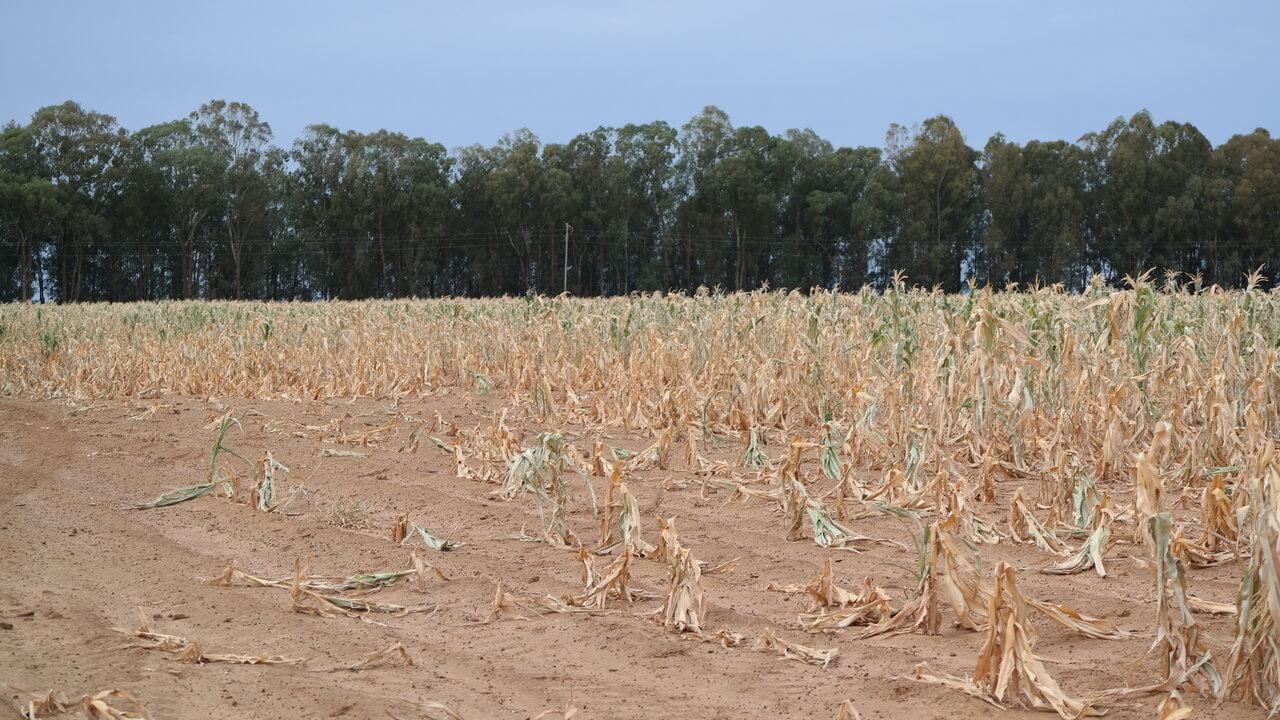
Image: USDA/FAS/Curt Reynolds
Call for Participation
The 3rd KDD Workshop on Data-driven Humanitarian Mapping and Policymaking solicits research papers, case studies, vision papers, software demos, and extended abstracts. We invite participation from a broad community of researchers and practitioners from academia, industry, government, and non-profits working on data-driven humanitarian mapping measurement methods, data and decision support systems, data-intensive technologies, ethics, and policies. We seek broader participation in the context of climate change mitigation and adaptation, war and human-conflict induced forced displacements, crisis response, indigenous communities, climate and environmental justice, racial and gender-based violence, human trafficking, food security, epidemiology, public health, urban planning and sustainable development, sustainability, biodiversity conservation, the COVID-19 pandemic, and human rights ethics and law. Fields of interest and methodologies include, but are not limited to, human-centered data science/AI, federated machine learning on non-IID datasets, privacy-preserving computations, transfer learning, visual analytics and uncertainty quantification, multi-agent systems, reinforcement learning, natural language processing, computer vision and remote sensing, AI fairness, accountability, transparency, and ethics, network science, crowdsourcing, ethics, and human rights law.
- Machine learning and causal inference methods for humanitarian mapping, measurement, monitoring, and decision-making (e.g. federated learning on non-IID datasets, causal models, meta-learning, domain-adaptation, transfer learning, spatiotemporal analytics, geospatial computer vision, remote sensing, etc.)
- Data representations, bias, visual analytics, and decision support systems
- Modeling and simulation-based techniques (multi-agent, reinforcement learning, and GANs) to solve the data scarcity problem in a regime shift
- Data-driven methods for enabling fast adaptation of world models to new regimes, changepoint detection, and uncertainty quantification
- Data-driven methods to understand the dynamics of human movement, evacuation, and short-and-long-term displacements due to natural disasters, climate-change threats, or human conflict
- Responsible AI and Privacy-preserving technologies for humanitarian mapping and monitoring
- Computational methodologies to detect and mitigate biases and fairness in humanitarian mapping datasets
- Computational modeling of social and economic impact of crises (e.g., COVID-19 pandemic, political polarization on social media, human-climate induced displacements, natural disasters, food insecurity, etc.) on underrepresented and/or marginalized groups including, but not limited to: gender, identity, race, ethnicity, disabilities, socioeconomic status
- Data-driven methods to understand resource accessibility (e.g., food, land, water, COVID-19 vaccines, health-care, education)
- Legal, justice, and ethical dimensions of humanitarian mapping data and technology governance, sharing, management, validation, and integration
- Insights from real-world cases studies, technology deployments, and humanitarian policy-making
- Critics, reflections, and limitations of the current state of the arts in humanitarian response systems and processes
- Vision for the future, including rigorous discussions on the gap between theory and policy practice
- Data systems and analytics software demonstrations
Submission Categories
The 3rd KDD Workshop on Data-driven Humanitarian Mapping and Policymaking solicits five kinds of submissions:
Please submit your paper using the submission site.
For more information contact Neil Gaikwad here.
Acceptance and Archival Policy
The 3rd KDD Workshop on Data-driven Humanitarian Mapping and Policymaking solicits five kinds of submissions:
- Research papers (6 pages + unlimited pages for references)
- Case Studies (4 pages + unlimited pages for references)
- Vision and Critics papers (2-5 pages + unlimited pages for references)
- Extended abstracts for Published Work (4 pages + unlimited pages for references)
- Software Demos (2 pages highlighting the problem, solution, analytical capabilities, and system design choices)
- The peer review process will be single-blind. The submission should include author names and affiliations.
- LaTex Overleaf. ACM Conference Proceedings Primary Article Template (without page number)Master Template.
- Microsoft Word. Download Microsoft Word.
- Submission deadline: June 10, 2022 at 11:59 PM Pacific Standard Time
- Acceptance notification: July 21, 2022
- Workshop date: August 15, 2022
Please submit your paper using the submission site.
For more information contact Neil Gaikwad here.
Acceptance and Archival Policy
- Accepted papers will be presented as posters or contributed talks.
- We will highlight accepted papers in the program section of the workshop website. The authors may opt-in for a digital arXiv of the Data-driven Humanitarian Mapping and Policymaking Workshop once the paper is accepted.
2022 Speakers and Panelists
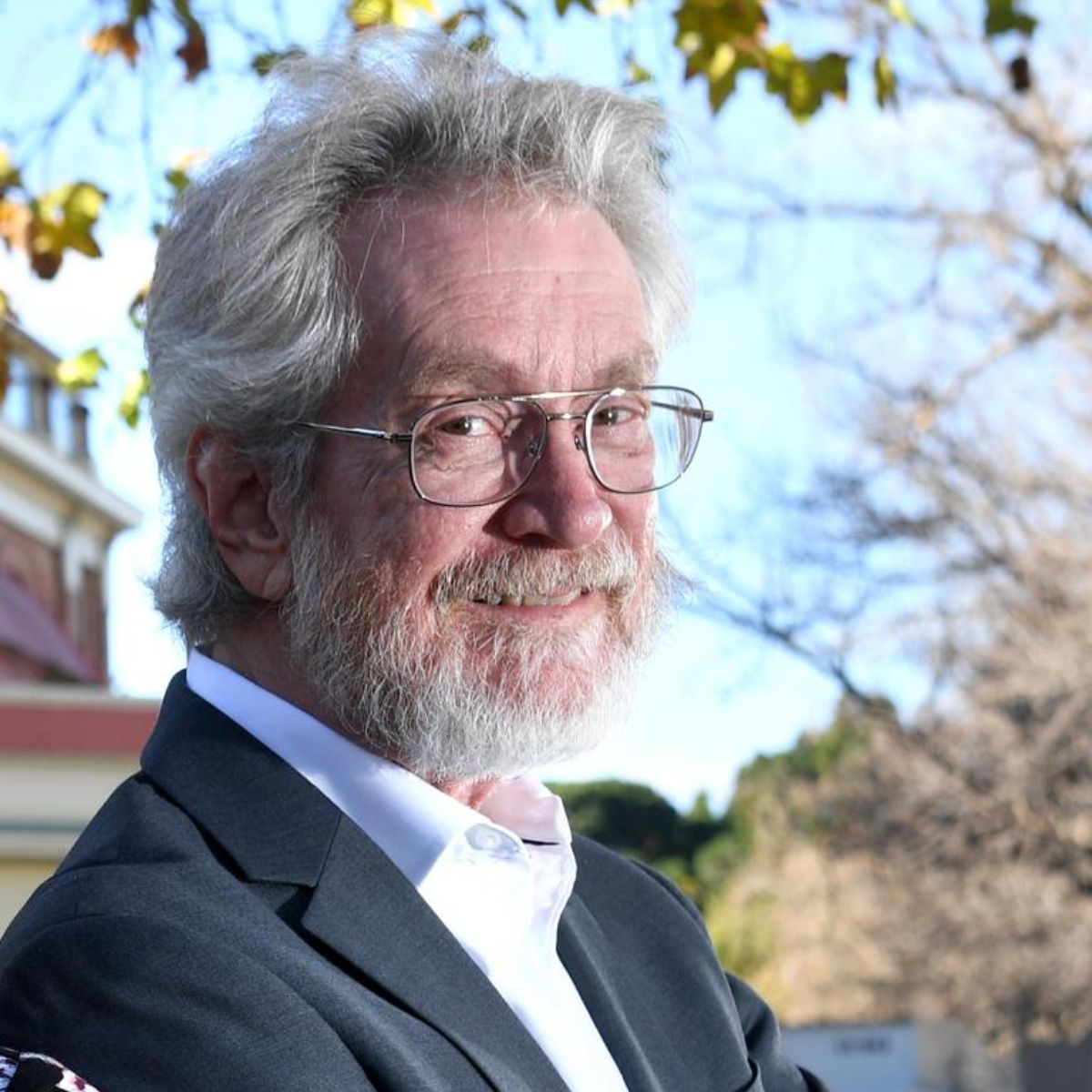
Alex 'Sandy' Pentland
MIT
MIT
Professor Alex 'Sandy' Pentland directs MIT Connection Science, an MIT-wide initiative, and previously helped create and direct the MIT Media Lab and the Media Lab Asia in India. He is one of the most-cited computational scientists in the world, and Forbes declared him one of the "7 most powerful data scientists in the world" along with Google founders and the Chief Technical Officer of the United States. He is on the Board of the UN Foundations' Global Partnership for Sustainable Development Data, co-led the World Economic Forum discussion in Davos that led to the EU privacy regulation GDPR, and was one of the UN Secretary General's "Data Revolutionaries" helping to forge the transparency and accountability mechanisms in the UN's Sustainable Development Goals. He has received numerous awards and prizes such as the McKinsey Award from Harvard Business Review, the 40th Anniversary of the Internet from DARPA, and the Brandeis Award for work in privacy. Recent invited keynotes include annual meetings of OECD, G20, World Bank, and JP Morgan.
He is a member of advisory boards for the UN Secretary General, the UN Foundation, Consumers Union, and OECD, and formerly the American Bar Association, Google, AT&T, and Nissan. He is a member of the U.S. National Academy of Engineering and council member within the World Economic Forum.
Companies co-founded or incubated by Pentland’s lab include the largest rural health care service delivery system in the world , the news and advertising arm of Alibaba , the identity authentication technology that powers India’s digital identity system Aadahar, and rural service outlets for India’s largest payment solutions provider.
More recent companies include Ginger.io (mental health services), CogitoCorp.com (AI coaching for interaction management), Humanyze.com (organizational health), Endor.com (turn-key, privacy-preserving AI), Wise Systems (delivery planning and optimization), Riff Analytics (on-line meeting enhancement), Sila Money (stable bank and coin), Akoya (secure, privacy-preserving financial interactions), FortifID (digital identity), Collaborative Community Services (investment in underserved communities), Prosperia (Fairness and bias mitigation for social services throughout Latin America), and Secure AI Labs (federated medical data analytics).
Over the years Sandy has advised more than 80 PhD students. Almost half are now tenured faculty at leading institutions, with another one-quarter leading industry research groups and a final quarter founders of their own companies. Together Sandy and his students have pioneered computational social science, organizational engineering, wearable computing (Google Glass), image understanding, and modern biometrics. His most recent books are Building the New Economy and Trusted Data, both published by MIT Press, Social Physics, published by Penguin Press, and Honest Signals, published by MIT Press.
Interesting experiences include dining with British Royalty and the President of India, staging fashion shows in Paris, Tokyo, and New York, and developing a method for counting beavers from space.
He is a member of advisory boards for the UN Secretary General, the UN Foundation, Consumers Union, and OECD, and formerly the American Bar Association, Google, AT&T, and Nissan. He is a member of the U.S. National Academy of Engineering and council member within the World Economic Forum.
Companies co-founded or incubated by Pentland’s lab include the largest rural health care service delivery system in the world , the news and advertising arm of Alibaba , the identity authentication technology that powers India’s digital identity system Aadahar, and rural service outlets for India’s largest payment solutions provider.
More recent companies include Ginger.io (mental health services), CogitoCorp.com (AI coaching for interaction management), Humanyze.com (organizational health), Endor.com (turn-key, privacy-preserving AI), Wise Systems (delivery planning and optimization), Riff Analytics (on-line meeting enhancement), Sila Money (stable bank and coin), Akoya (secure, privacy-preserving financial interactions), FortifID (digital identity), Collaborative Community Services (investment in underserved communities), Prosperia (Fairness and bias mitigation for social services throughout Latin America), and Secure AI Labs (federated medical data analytics).
Over the years Sandy has advised more than 80 PhD students. Almost half are now tenured faculty at leading institutions, with another one-quarter leading industry research groups and a final quarter founders of their own companies. Together Sandy and his students have pioneered computational social science, organizational engineering, wearable computing (Google Glass), image understanding, and modern biometrics. His most recent books are Building the New Economy and Trusted Data, both published by MIT Press, Social Physics, published by Penguin Press, and Honest Signals, published by MIT Press.
Interesting experiences include dining with British Royalty and the President of India, staging fashion shows in Paris, Tokyo, and New York, and developing a method for counting beavers from space.
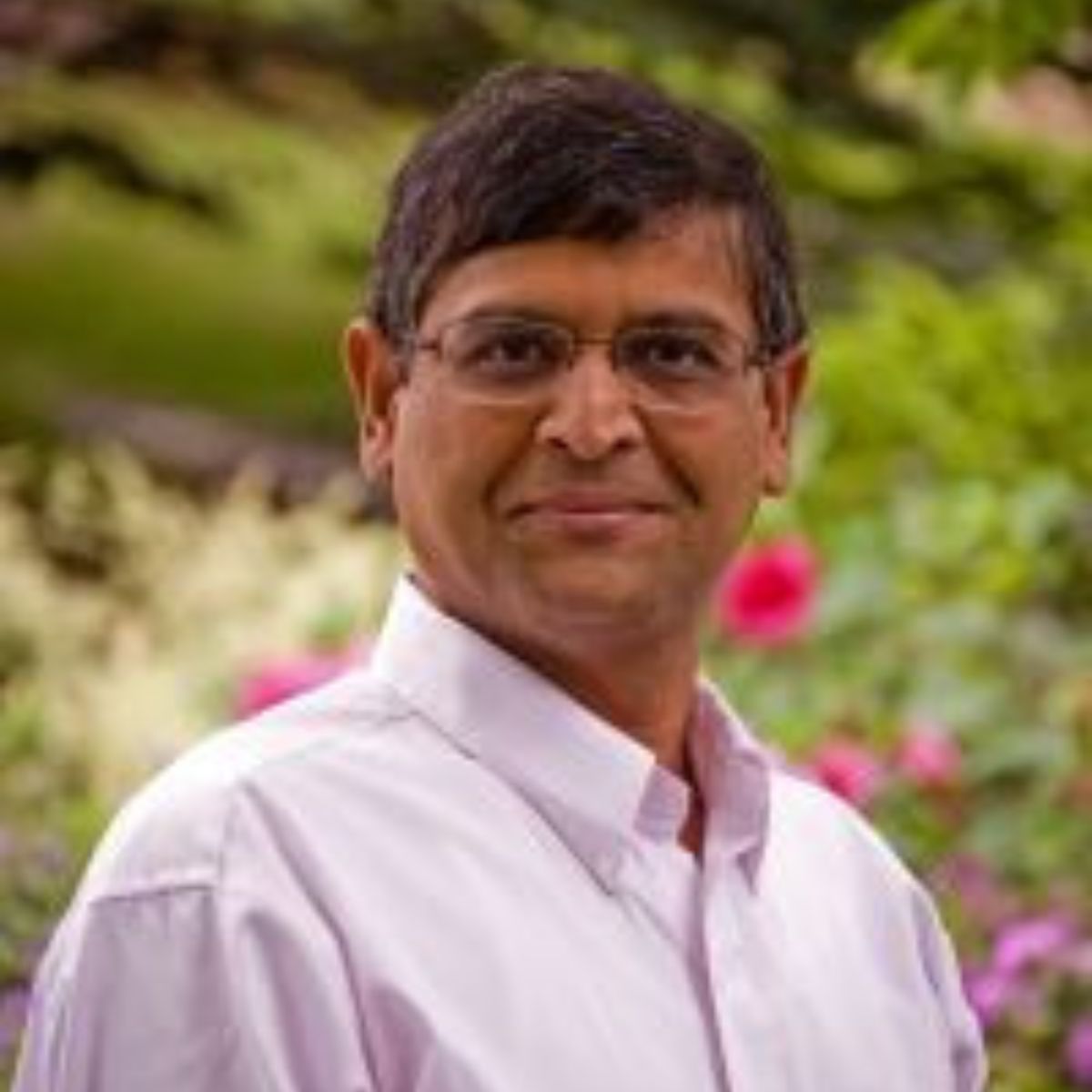
Vipin Kumar
University of Minnesota
University of Minnesota
Vipin Kumar is a Regents Professor at the University of Minnesota, where he holds the William Norris Endowed Chair in the Department of Computer Science and Engineering. Kumar received the B.E. degree in Electronics & Communication Engineering from Indian Institute of Technology Roorkee (formerly, University of Roorkee), India, in 1977, the M.E. degree in Electronics Engineering from Philips International Institute, Eindhoven, Netherlands, in 1979, and the Ph.D. degree in Computer Science from University of Maryland, College Park, in 1982. He also served as the Head of the Computer Science and Engineering Department from 2005 to 2015 and the Director of Army High Performance Computing Research Center (AHPCRC) from 1998 to 2005.
Kumar's research spans data mining, high-performance computing, and their applications in Climate/Ecosystems and health care. His research has resulted in the development of the concept of isoefficiency metric for evaluating the scalability of parallel algorithms, as well as highly efficient parallel algorithms and software for sparse matrix factorization (PSPASES) and graph partitioning (METIS, ParMetis, hMetis). He has authored over 300 research articles, and has coedited or coauthored 10 books including two text books ``Introduction to Parallel Computing'' and ``Introduction to Data Mining'', that are used world-wide and have been translated into many languages. Kumar's current major research focus is on bringing the power of big data and machine learning to understand the impact of human induced changes on the Earth and its environment. Kumar served as the Lead PI of a 5-year, $10 Million project, "Understanding Climate Change - A Data Driven Approach", funded by the NSF's Expeditions in Computing program that is aimed at pushing the boundaries of computer science research.
Kumar has served as chair/co-chair for many international conferences in the area of data mining, big data, and high performance computing, including 25th SIGKDD Conference on Knowledge Discovery and Data Mining (KDD 2019), 2015 IEEE International Conference on Big Data, IEEE International Conference on Data Mining (2002), and International Parallel and Distributed Processing Symposium (2001). Kumar co-founded SIAM International Conference on Data Mining and served as a founding co-editor-in-chief of Journal of Statistical Analysis and Data Mining (an official journal of the American Statistical Association). Currently, Kumar serves on the steering committees of the SIAM International Conference on Data Mining and the IEEE International Conference on Data Mining, and is series editor for the Data Mining and Knowledge Discovery Book Series published by CRC Press/Chapman Hall.
Kumar has been elected a Fellow of the American Association for Advancement for Science (AAAS), Association for Computing Machinery (ACM), Institute of Electrical and Electronics Engineers (IEEE), and Society for Industrial and Applied Mathematics (SIAM). He received the Distinguished Alumnus Award from the Indian Institute of Technology (IIT) Roorkee (2013), the Distinguished Alumnus Award from the Computer Science Department, University of Maryland College Park (2009), and IEEE Computer Society's Technical Achievement Award (2005). Kumar's foundational research in data mining and high performance computing has been honored by the ACM SIGKDD 2012 Innovation Award, which is the highest award for technical excellence in the field of Knowledge Discovery and Data Mining (KDD), and the 2016 IEEE Computer Society Sidney Fernbach Award, one of IEEE Computer Society's highest awards in high-performance computing.
Kumar's research spans data mining, high-performance computing, and their applications in Climate/Ecosystems and health care. His research has resulted in the development of the concept of isoefficiency metric for evaluating the scalability of parallel algorithms, as well as highly efficient parallel algorithms and software for sparse matrix factorization (PSPASES) and graph partitioning (METIS, ParMetis, hMetis). He has authored over 300 research articles, and has coedited or coauthored 10 books including two text books ``Introduction to Parallel Computing'' and ``Introduction to Data Mining'', that are used world-wide and have been translated into many languages. Kumar's current major research focus is on bringing the power of big data and machine learning to understand the impact of human induced changes on the Earth and its environment. Kumar served as the Lead PI of a 5-year, $10 Million project, "Understanding Climate Change - A Data Driven Approach", funded by the NSF's Expeditions in Computing program that is aimed at pushing the boundaries of computer science research.
Kumar has served as chair/co-chair for many international conferences in the area of data mining, big data, and high performance computing, including 25th SIGKDD Conference on Knowledge Discovery and Data Mining (KDD 2019), 2015 IEEE International Conference on Big Data, IEEE International Conference on Data Mining (2002), and International Parallel and Distributed Processing Symposium (2001). Kumar co-founded SIAM International Conference on Data Mining and served as a founding co-editor-in-chief of Journal of Statistical Analysis and Data Mining (an official journal of the American Statistical Association). Currently, Kumar serves on the steering committees of the SIAM International Conference on Data Mining and the IEEE International Conference on Data Mining, and is series editor for the Data Mining and Knowledge Discovery Book Series published by CRC Press/Chapman Hall.
Kumar has been elected a Fellow of the American Association for Advancement for Science (AAAS), Association for Computing Machinery (ACM), Institute of Electrical and Electronics Engineers (IEEE), and Society for Industrial and Applied Mathematics (SIAM). He received the Distinguished Alumnus Award from the Indian Institute of Technology (IIT) Roorkee (2013), the Distinguished Alumnus Award from the Computer Science Department, University of Maryland College Park (2009), and IEEE Computer Society's Technical Achievement Award (2005). Kumar's foundational research in data mining and high performance computing has been honored by the ACM SIGKDD 2012 Innovation Award, which is the highest award for technical excellence in the field of Knowledge Discovery and Data Mining (KDD), and the 2016 IEEE Computer Society Sidney Fernbach Award, one of IEEE Computer Society's highest awards in high-performance computing.
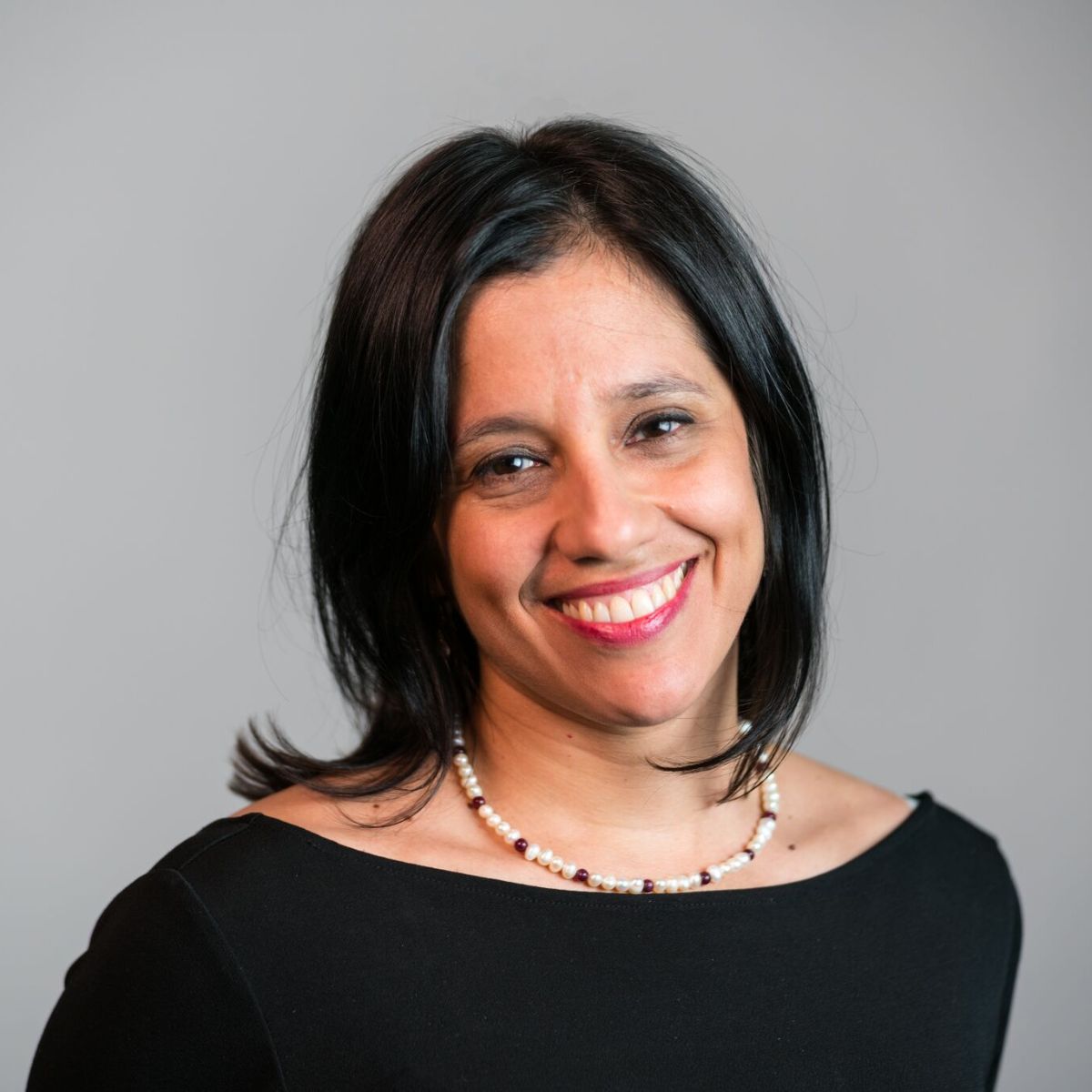
Marta Gonzalez
University of California, Berkeley
University of California, Berkeley
Marta C. Gonzalez is Associate Professor of City and Regional Planning, Civil and Environmental Engineering at the University of California, Berkeley, and a Physics Research faculty in the Energy Technology Area (ETA) at the Lawrence Berkeley National Laboratory (Berkeley Lab).
With the support of several companies, cities and foundations, her research team develops computer models to analyze digital traces of information mediated by devices. They process this information to manage the demand in urban infrastructures in relation to energy and mobility. Her recent research uses billions of mobile phone records to understand the appearance of traffic jams and the integration of electric vehicles into the grid, smart meter data records to compare the policy of solar energy adoption and card transactions to identify habits in spending behavior.
Prior to joining Berkeley, Marta worked as an Associate Professor of Civil and Environmental Engineering at MIT, a member of the Operations Research Center and the Center for Advanced Urbanism. She is a member of the scientific council of technology companies such as Gran Data, PTV and the Pecan Street Project consortium.
With the support of several companies, cities and foundations, her research team develops computer models to analyze digital traces of information mediated by devices. They process this information to manage the demand in urban infrastructures in relation to energy and mobility. Her recent research uses billions of mobile phone records to understand the appearance of traffic jams and the integration of electric vehicles into the grid, smart meter data records to compare the policy of solar energy adoption and card transactions to identify habits in spending behavior.
Prior to joining Berkeley, Marta worked as an Associate Professor of Civil and Environmental Engineering at MIT, a member of the Operations Research Center and the Center for Advanced Urbanism. She is a member of the scientific council of technology companies such as Gran Data, PTV and the Pecan Street Project consortium.

Meeyoung Cha
Korea Advanced Institute of Science and Technology
Korea Advanced Institute of Science and Technology
Meeyoung Cha is an associate professor at the Korea Advanced Institute of Science and Technology (KAIST). Her research is on data science with an emphasis on modeling socially relevant information propagation processes. Her work on misinformation, poverty mapping, fraud detection, and long-tail content has gained more than 18,000 citations. She worked at Facebook's Data Science Team as a Visiting Professor and is a recipient of the Korean Young Information Scientist Award and AAAI ICWSM Test of Time Award. She is currently jointly affiliated as a Chief Investigator at the Institute for Basic Science (IBS) in Korea.
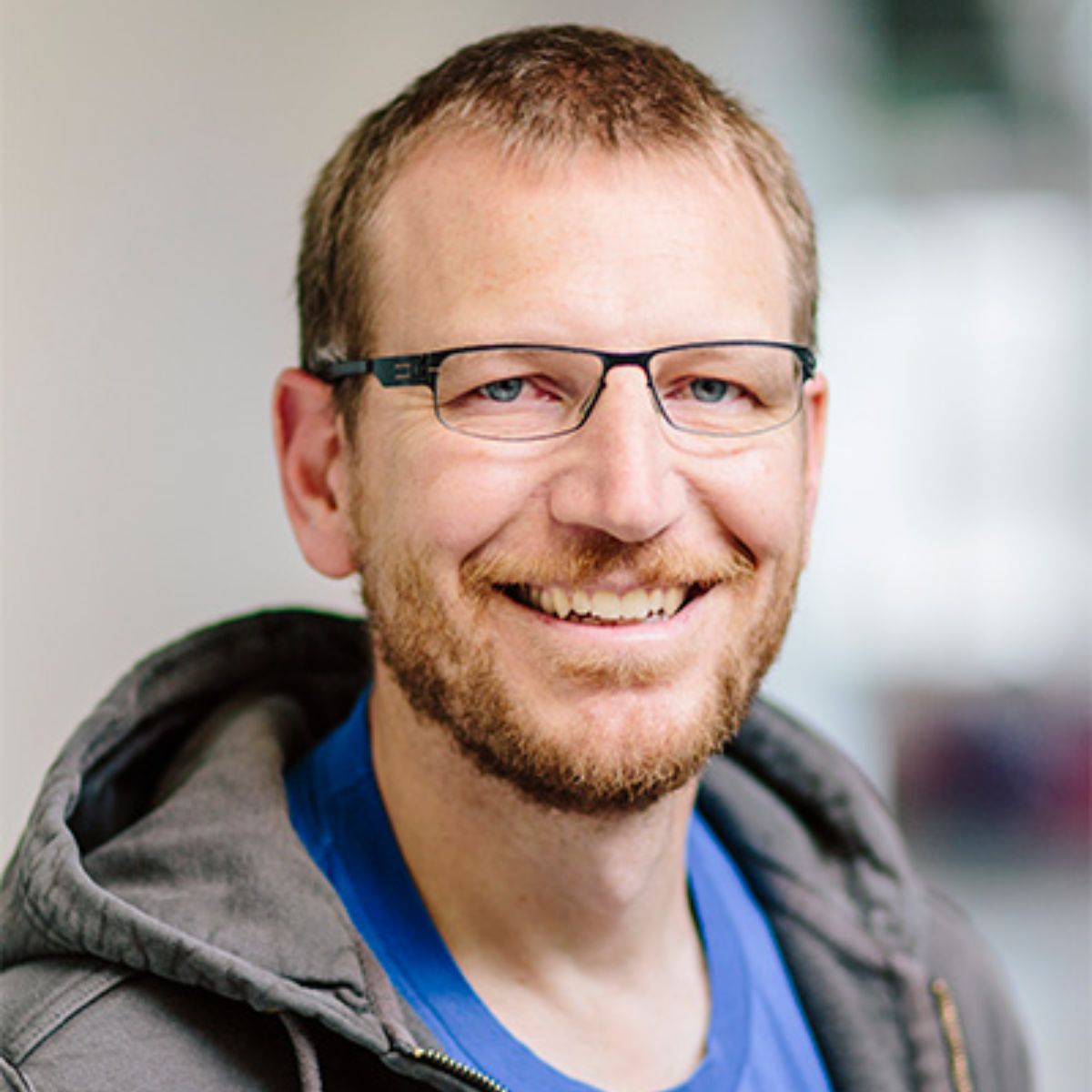
Andi Gros
Meta Research
Meta Research
Andi Gros is a scientist with a background in complex systems on Facebook’s spatial computing team. He currently works on the High-Resolution Settlement Layer and connectivity crisis data. He also works on spatial demographic questions. For his PhD he studied the evolution of dispersal strategies at the University of Wuerzburg, Germany. He expanded the work on spatial co-evolutionary systems as a postdoc at the New England Complex Systems Institute, where he also worked on spatial socio-economic systems, like ethnic violence. He received his diploma (equivalent to MS) in applied systems analysis at the Institute of Applied Systems Analysis in Osnabrueck, Germany.
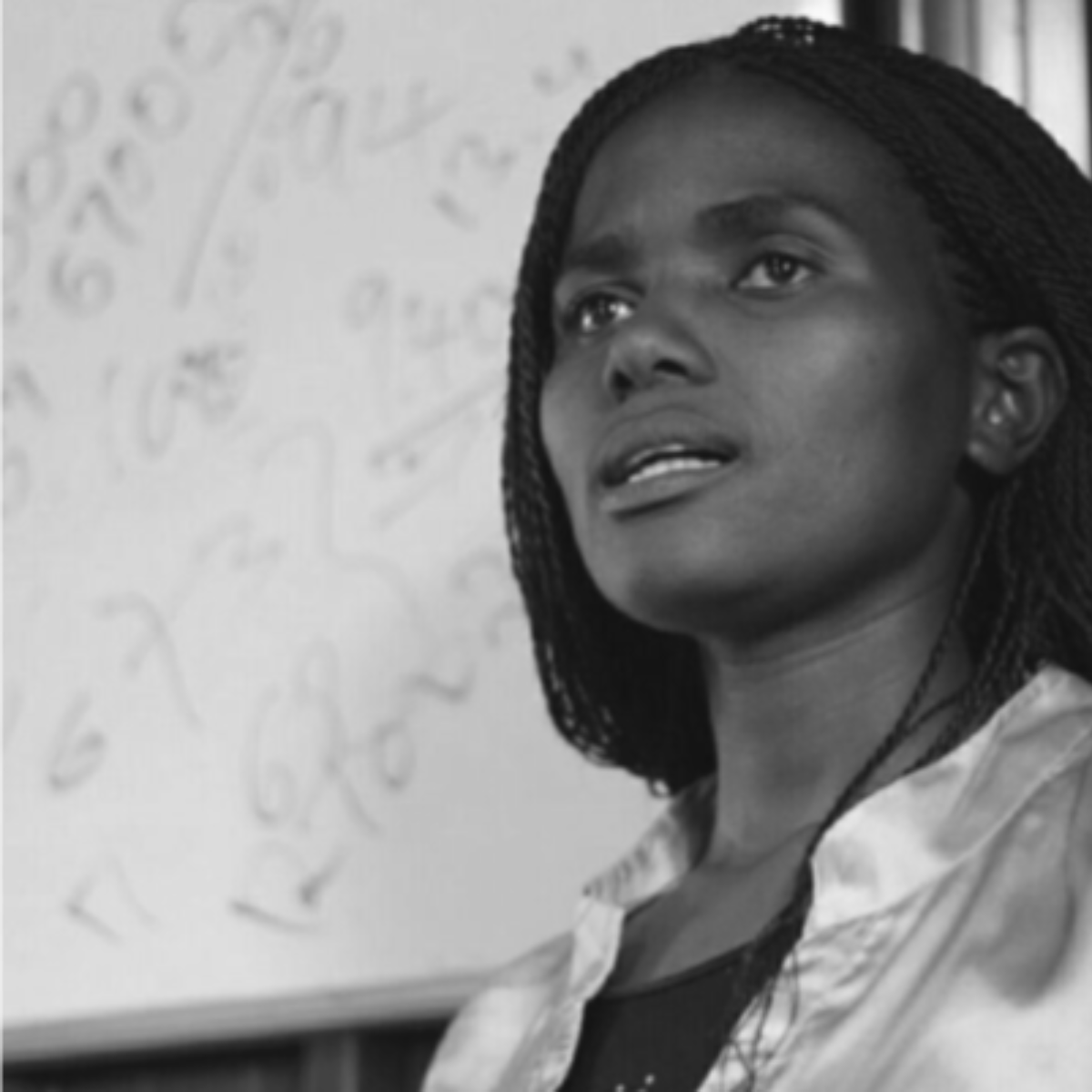
Nicera Wanjiru K.
Community Mappers
Community Mappers
Nicera Wanjiru is a community trainer and mobilizer with more than 10 years of experience leading qualitative, mapping, and research data collection in Kenya’s informal settlements. After years of leading informal data collection initiatives in her home community of Kibera, Nairobi, Nicera founded a women-led community-based data collection organization in 2020 called Community Mappers (www.communitymappers.com). Community Mappers has since provided data consulting services for global academic teams, and designed and implemented several of its own studies to inform community decision-making and advocacy including a COVID-related Food Insecurity household survey in 2020 and a census of all trash piles in four Nairobi slums in 2021. She is also co-developing a training curriculum (Data 4 Human Rights) by, and for, "slum"-based data collectors.

Dana R. Thomson
Visiting Researcher, University of Twente
Visiting Researcher, University of Twente
Dr. Dana R. Thomson is a visiting researcher at the University of Twente. The emphasis of Dr. Thomson’s research is identification of "slum" residents and other populations who are under-represented in population data, and development of tools and methods to improve data accuracy. As an expert in the emerging field of gridded population sampling, she developed GridSample.org to support survey practitioners to select survey sample locations from gridded population estimates in settings with outdated or inaccurate census data, and is currently authoring a gridded population survey manual. Dr. Thomson also coordinates the IDEAMAPS Network, an initiative to integrate "slum" mapping traditions and map deprived urban areas routinely and accurately at scale across countries. Other work includes evaluation of gridded population dataset accuracy in "slums" to improve SDG 11 monitoring, and co-development of a training curriculum (Data 4 Human Rights) designed by, and for, "slum"-based data collectors. Dr. Thomson has a BA in Geography from George Washington University, MSc in Global Health from Harvard School of Public Health, and an MSc and PhD in Social Statistics from University of Southampton.

Oskar Josef Gstrein
University of Groningen
University of Groningen
Dr. Oskar Josef Gstrein is a Programme Director of the Bachelor Data Science & Society at Campus Fryslân, where he is also Assistant Professor of Governance and Innovation, and member of the Data Research Centre. His overall research theme is ‘Human Dignity in the Digital Age’ and his publications cover aspects of Human Rights in the Digital Age, Internet Governance, the governance of emerging technologies (incl. AI, Distributed Ledger Technologies), privacy, (cyber-)security, surveillance in the context of democracy and the rule of law, as well as digital identity. His LL.M. thesis was awarded with the Hans-Werner Osthoff Prize for outstanding achievements by junior researchers in 2012 and his PhD thesis in the field of European and international data protection law on the concept of a ‘Right to be forgotten’ was awarded with the grade ‘summa cum laude’ (published Nomos 2016).

Alex Pompe
Meta Research
Meta Research
Alex Pompe is a Research Manager on the Data for Good team at Meta. This team builds and shares over 25 privacy-protecting datasets for natural disasters, public health, poverty alleviation, and climate change. Previously, Alex led the growth team at a gig-economy startup scaling the company to 35 countries over 3 years. Prior to this he worked on access to information and Internet programs for 6 years at an international NGO called IREX; first in Ukraine, next in Namibia, and then in Washington DC. He served as a Peace Corps volunteer teaching mathematics in Namibia from 2006 to 2008. Alex holds a BS in physics from the University of Illinois (research focused on defects in amorphous metals), and an MS from the University of Michigan (where his research focused on the maintenance and repair of ICTs in the global south and also taught astrophysics.)
Program
Eastern Standard Time
AUGUST 15th, 2022
9:00 AM
OPENING REMARKS
Data-driven Humanitarian Mapping and Policymaking
Neil Gaikwad
Massachusetts Institute of Technology
Data-driven Humanitarian Mapping and Policymaking
Neil Gaikwad
Massachusetts Institute of Technology
9:15 AM
PANEL 1
Data-driven Mapping and Decision-making Without Gaps
Nicera Wanjiru K.
Community Mappers, Kenya
Meeyoung Cha
Korea Advanced Institute of Science and Technology
Andreas (Andi) Gros
Meta Research
Dana Thompson
Visiting Researcher, University of Twente
Data-driven Mapping and Decision-making Without Gaps
Nicera Wanjiru K.
Community Mappers, Kenya
Meeyoung Cha
Korea Advanced Institute of Science and Technology
Andreas (Andi) Gros
Meta Research
Dana Thompson
Visiting Researcher, University of Twente
10:00 AM
PAPER SESSION 1
Data-driven Mapping and Development Indicators at Regional and Global Scales
Oral: Learning Economic Indicators by Aggregating Multi-Level Geospatial Information
Sungwon Park (KAIST); Sungwon Han (KAIST); Donghyun Ahn (KAIST); Jaeyeon Kim (New York University); Jeasurk Yang (National University of Singapore); Susang Lee (KAIST); Jihee Kim (KAIST); Sangyoon Park (University of Hong Kong); Hyunjoo Yang (Sogang University); Meeyoung Cha (Institute for Basic Science)
Oral: Satellite-based Poverty Mapping: Accuracy, Fairness, and Policy Implications
Emily L Aiken (University of California, Berkeley); Joshua Blumenstock (University of California, Berkeley); Esther Rolf (UC Berkeley)
Oral: Where Are All the Jobs. A Machine Learning Approach for High Resolution Urban Employment Prediction in Developing Countries
Samira Barzin (Mathematical Institute, University of Oxford), Paolo Avner (The World Bank) Jun Rentschler (The World Bank) , Neave O’Clery (University of Oxford, The Barlett Centre for Advanced Spatial Analysis, University College London)
Dialogue and conversation with authors
Data-driven Mapping and Development Indicators at Regional and Global Scales
Oral: Learning Economic Indicators by Aggregating Multi-Level Geospatial Information
Sungwon Park (KAIST); Sungwon Han (KAIST); Donghyun Ahn (KAIST); Jaeyeon Kim (New York University); Jeasurk Yang (National University of Singapore); Susang Lee (KAIST); Jihee Kim (KAIST); Sangyoon Park (University of Hong Kong); Hyunjoo Yang (Sogang University); Meeyoung Cha (Institute for Basic Science)
Oral: Satellite-based Poverty Mapping: Accuracy, Fairness, and Policy Implications
Emily L Aiken (University of California, Berkeley); Joshua Blumenstock (University of California, Berkeley); Esther Rolf (UC Berkeley)
Oral: Where Are All the Jobs. A Machine Learning Approach for High Resolution Urban Employment Prediction in Developing Countries
Samira Barzin (Mathematical Institute, University of Oxford), Paolo Avner (The World Bank) Jun Rentschler (The World Bank) , Neave O’Clery (University of Oxford, The Barlett Centre for Advanced Spatial Analysis, University College London)
Dialogue and conversation with authors
10:45 AM
BREAK
11:00 AM
KEYNOTE
Data Science for Resilient and Healthier Urban Networks
Marta C. Gonzalez
University of California, Berkeley
Data Science for Resilient and Healthier Urban Networks
Marta C. Gonzalez
University of California, Berkeley
12:00 PM
LUNCH BREAK
Connect and Engage
Connect and Engage
12:30 PM
SESSION 2
Data-intensive Methods for Decision-making in Complex Systems
Oral: Creating Geospatial Trajectories from Text Corpora
Saydeh N Karabatis (University of Maryland Baltimore County (UMBC); Vandana Janeja (UMBC)
Oral: Estimating Geographic Spillover Effects of COVID-19 Policies from Large-scale Mobility Networks
Serina Y Chang (Stanford University); Damir Vrabac (Stanford University); Jure Leskovec (Stanford University); Johan Ugander (Stanford University)
Oral: Multi-AI Complex Systems in Humanitarian Response
Joseph Aylett-Bullock (UN Global Pulse and Durham University); Miguel Luengo-Oroz (UNGP)
Dialogue and conversation with authors
Data-intensive Methods for Decision-making in Complex Systems
Oral: Creating Geospatial Trajectories from Text Corpora
Saydeh N Karabatis (University of Maryland Baltimore County (UMBC); Vandana Janeja (UMBC)
Oral: Estimating Geographic Spillover Effects of COVID-19 Policies from Large-scale Mobility Networks
Serina Y Chang (Stanford University); Damir Vrabac (Stanford University); Jure Leskovec (Stanford University); Johan Ugander (Stanford University)
Oral: Multi-AI Complex Systems in Humanitarian Response
Joseph Aylett-Bullock (UN Global Pulse and Durham University); Miguel Luengo-Oroz (UNGP)
Dialogue and conversation with authors
1:15 PM
KEYNOTE
The Politics of Data-Driven Humanitarian Mapping: Making Systems that Work for Everyone
Alex 'Sandy' Pentland
Massachusetts Institute of Technology
The Politics of Data-Driven Humanitarian Mapping: Making Systems that Work for Everyone
Alex 'Sandy' Pentland
Massachusetts Institute of Technology
2:15 PM
BREAK
2:25 PM
PANEL 2
Privacy Preserving Methods and Post Crisis Data Exhaust
Oskar Josef Gstrein
University of Groningen
Alex Pompe
Meta Research
Privacy Preserving Methods and Post Crisis Data Exhaust
Oskar Josef Gstrein
University of Groningen
Alex Pompe
Meta Research
3:15 PM
SESSION 3
Data-driven Decision-making for Resilient Communities and Infrastructure Planning
Lightning Talk: Working Towards an AI-based Clustering of Airports, in the Effort of Improving Humanitarian Disaster Preparedness
Maria Browarska (TU Delft); Karla Saldana Ochoa (University of Florida)
Oral: Modeling Population Movements under Uncertainty at the Border in Humanitarian Crises
Arturo De Nieves Gutierrez de Rubalcava (UNHCR, Brazil); Oscar Sanchez Piniero (UNHCR, Brazil); Rebeca Moreno Jimenez (UNHCR, Innovation); Joseph Aylett-Bullock (UN Global Pulse and Durham University); Azra Ismail (Georgia Institute of Technology); Sofia Kiriazi (UNHCR, Innovation); Catherine Schneider (UNHCR, Innovation); Fred Sekidde (UNHCR, Brazil); Giulia Del Panta (UNHCR, Global Data Service); Vanessa Maigne (UN Global Pulse); Miguel Luengo-Oroz (UNGP); Katherine Hoffmann Pham (UN Global Pulse)
Lightning Talk: Towards Urban Homeostasis: Data-driven Humanitarian Response and Planning in the Case of Post-Blast Beirut
Joanne F Hayek (Dubai Institute of Design and Innovation); Balsam Madi (BMStudio)
Dialogue and conversation with authors
Data-driven Decision-making for Resilient Communities and Infrastructure Planning
Lightning Talk: Working Towards an AI-based Clustering of Airports, in the Effort of Improving Humanitarian Disaster Preparedness
Maria Browarska (TU Delft); Karla Saldana Ochoa (University of Florida)
Oral: Modeling Population Movements under Uncertainty at the Border in Humanitarian Crises
Arturo De Nieves Gutierrez de Rubalcava (UNHCR, Brazil); Oscar Sanchez Piniero (UNHCR, Brazil); Rebeca Moreno Jimenez (UNHCR, Innovation); Joseph Aylett-Bullock (UN Global Pulse and Durham University); Azra Ismail (Georgia Institute of Technology); Sofia Kiriazi (UNHCR, Innovation); Catherine Schneider (UNHCR, Innovation); Fred Sekidde (UNHCR, Brazil); Giulia Del Panta (UNHCR, Global Data Service); Vanessa Maigne (UN Global Pulse); Miguel Luengo-Oroz (UNGP); Katherine Hoffmann Pham (UN Global Pulse)
Lightning Talk: Towards Urban Homeostasis: Data-driven Humanitarian Response and Planning in the Case of Post-Blast Beirut
Joanne F Hayek (Dubai Institute of Design and Innovation); Balsam Madi (BMStudio)
Dialogue and conversation with authors
4:00 PM
CONVERSATION WITH EXPERTS
Data-driven Humanitarian Mapping and Policymaking: Challenges and Opportunities for Climate Change Mitigation and Adaptation
Vipin Kumar
University of Minnesota
Data-driven Humanitarian Mapping and Policymaking: Challenges and Opportunities for Climate Change Mitigation and Adaptation
Vipin Kumar
University of Minnesota
4:45 PM
REFLECTIONS AND CLOSING REMARKS
Neil Gaikwad
Massachusetts Institute of Technology
Neil Gaikwad
Massachusetts Institute of Technology
Registration and Diversity Scholarship
Online participation via Zoom
Please submit this form
In-person participation at Washington DC
Register using the KDD portal
DEI & Belonging Scholarship
The KDD Workshop on Data-driven Humanitarian Mapping welcomes and encourages participation by people of all backgrounds and identities worldwide. We are committed to fostering and sustaining an inclusive environment. To increase participation in data science by underrepresented and historically marginalized groups, we are offering need-based diversity and belonging scholarships. The scholarships will include complimentary registration to the workshop. Applicants from underrepresented groups including, but not limited to: gender, identity, race, ethnicity, disabilities, socioeconomic status, discipline are encouraged to apply. Click here to apply for the diversity and belonging scholarship. The early deadline is August 12, 2022, at 11:59 PM (PST).
Join the Global Community of Researchers, Policymakers, and Practitioners
Please register here to join the Data-driven Humanitarian Mapping community on slack.
Please submit this form
In-person participation at Washington DC
Register using the KDD portal
DEI & Belonging Scholarship
The KDD Workshop on Data-driven Humanitarian Mapping welcomes and encourages participation by people of all backgrounds and identities worldwide. We are committed to fostering and sustaining an inclusive environment. To increase participation in data science by underrepresented and historically marginalized groups, we are offering need-based diversity and belonging scholarships. The scholarships will include complimentary registration to the workshop. Applicants from underrepresented groups including, but not limited to: gender, identity, race, ethnicity, disabilities, socioeconomic status, discipline are encouraged to apply. Click here to apply for the diversity and belonging scholarship. The early deadline is August 12, 2022, at 11:59 PM (PST).
Join the Global Community of Researchers, Policymakers, and Practitioners
Please register here to join the Data-driven Humanitarian Mapping community on slack.
General Chairs
- Neil S. Gaikwad (MIT ) Lead/Primary contact: gaikwad@mit.edu
- Shankar Iyer (Meta Research)
- Dalton Lunga (Oak Ridge National Laboratory )
Organizing Team
- Neil S. Gaikwad (MIT Media Lab)
- Shankar Iyer (Meta Research)
- Dalton Lunga (Oak Ridge National Laboratory )
- Takahiro Yabe (MIT IDSS)
- Xiaofan Liang (Georgia Institute of Technology )
- Nikhil Behari (Harvard University)
- Bhavani Ananthabhotla (MIT IDSS Technology & Policy Program)
- Sreelekha Guggilam (Oak Ridge National Laboratory)
- Guanghua Chi (Meta Research)
Program Committee
- Girmaw Abebe Tadesse (IBM Research Africa )
- Andrés Abeliuk (University of Southern California)
- Emily Aiken (University of California, Berkeley)
- Kristen Altenburger (Facebook Research)
- Joseph Aylett-Bullock (UN Global Pulse and Durham University)
- Samira Barzin (University of Oxford)
- Ciro Cattuto (ISI Foundation and University of Torino)
- Philipe Dias (Oak Ridge National Laboratory)
- Alex Dow (Facebook Research)
- Antonio Fernández Anta (IMDEA Networks Institute, Spain)
- Sam Fraiberger (World Bank)
- Vanessa Frias-Martinez (University of Maryland iSchool)
- Morgan Frank (University of Pittsburgh)
- Eugenia Giraudy (Facebook Research)
- Ritwik Gupta (UC Berkeley)
- Lelia Hampton (Massachusetts Institute of Technology)
- Katherine Hoffmann Pham (UN Global Pulse, NYU)
- Abigail Horn (University of Southern California)
- Amanda Hughes (Brigham Young University)
- Carolynne Hultquist (Columbia University)
- Muhammad Imran (Qatar Computing Research Institute)
- Yennie Jun (UN Global Pulse)
- Hang Jiang (Massachusetts Institute of Technology)
- Rishemjit Kaur (Central Scientific Instruments Organization, India)
- Jill Kelly (Harvard University)
- Ashique Khudabukhsh (Rochester Institute of Technology)
- Jackson Killian (Harvard University)
- Nitin Kohli (University of California, Berkeley)
- Amanda Kube (Data Science Institute, University of Chicago)
- Kuldeep Kurte (Oak Ridge National Laboratory)
- Priyank Lathwal (Harvard Kennedy School)
- Hao Li (Heidelberg University)
- Björn Lütjens (Massachusetts Institute of Technology)
- Aditya Mate (Harvard University)
- Thilanka Munasinghe(Rensselaer Polytechnic Institute)
- Wilhelmina Nekoto (Masakhane, Africa)
- Shawn Newsam (University of California at Merced)
- Daniela Paolotti (ISI Foundation)
- Aparna Phalke (NASA)
- Katherine Picchione (MIT Lincoln Laboratory)
- Alex Pompe (Facebook Research)
- Sefala Raesetje (Distributed AI Research institute)
- Minoo Rathnasabapathy (Massachusetts Institute of Technology)
- David Reed (Massachusetts Institute of Technology)
- Amy Rose (Oak Ridge National Laboratory)
- Bahman Rostami-Tabar (Cardiff University)
- Akansha Saklani (World Resource Institute India)
- Karla Saldana Ochoa (University of Florida)
- Belen Saldias Fuentes (Massachusetts Institute of Technology)
- Marzia Rango (IOM's Global Migration Data Analysis Centre (GMDAC))
- Omari Sefu (Facebook Research)
- Vedran Sekara (IT University of Copenhagen)
- Nagendra Singh (Oak Ridge National Laboratory)
- Robert Soden (University of Toronto)
- Kevin Sparks (Oak Ridge National Laboratory)
- Lijun Sun (Mcgill University)
- Gautum Thakur (Oak Ridge National Laboratory)
- Satish Ukkusuri (Purdue University)
- Marie Urban (Oak Ridge National Laboratory)
- Ingmar Weber (Qatar Computing Research Institute)
- Lily Xu (Harvard University)
Advisory Committee
- Hamed Alemohammad (Radiant Earth Foundation)
- Budhu Bhaduri (Oak Ridge National Laboratory)
- Joshua Blumenstock (University of California, Berkeley)
- Carlos Castillo (Universitat Pompeu Fabra)
- Vipin Kumar (University of Minnesota)
- Yu-Ru lin (University of Pittsburgh)
- Miho Mazereeuw (MIT)
- Rahul Panicker (Wadhwani AI)
- Megan Price (Human Rights Data Analysis Group)
- Ramesh Raskar (MIT)
Workshop Anti-harassment Policy
We are dedicated to providing a harassment-free conference experience for everyone regardless of gender, gender identity and expression, sexual orientation, disability, physical appearance, body size, race, age, or religion. We do not tolerate harassment of workshop participants in any form. Sexual language and imagery are not appropriate for any conference venue, including talks. Workshop participants violating these rules may be sanctioned or expelled from the workshop at the discretion of the organizers. If you have any concerns or questions, please reach out.